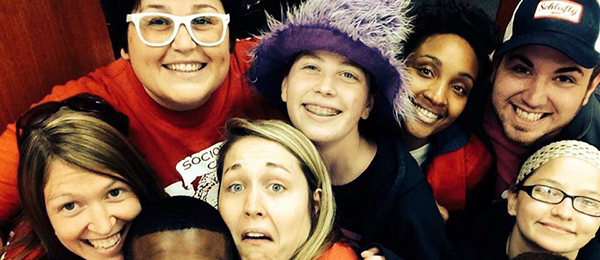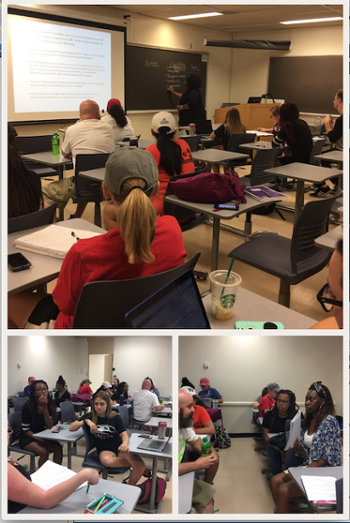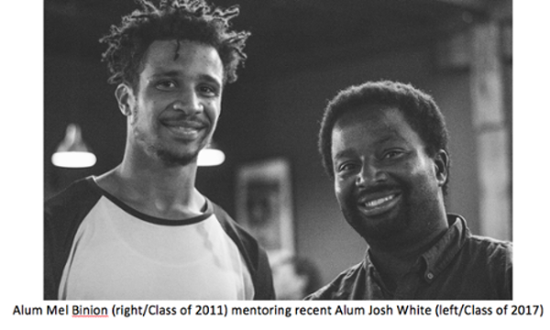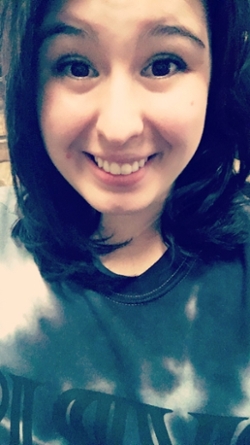1) Before you began teaching in the sociology department at SIUE, you were a student here. What is the biggest surprise you faced transitioning from student to professor?
When I first started teaching here in August 2008, I was 26 years old and had a bit of imposter-syndrome. I wanted students to know I was friendly, but not their friend. I was insecure about the lack of age difference and the fact several of those students were older than me. I overcompensated by being what I consider a bit harsh as an instructor, and I am not a harsh person. This insight led me to alter my approach to teaching.
When I was hired to be part of the faculty fulltime in January 2010, I was overjoyed and flattered that my mentors were willing to become my colleagues and saw in me the potential to be their peer. Now here we are nearly a decade later,and ironically I long for the time when there was less of an age-gap between most of my students and I. I want to remain relatable as I most value my role as mentor.
My students know that I can be long-winded! I’d have to sum my biggest surprise to be: how much I continue to learn as instructor. I loved being a student, and I used to long to continue to be a student, but the pace at which I continue to learn is quite high. I am continuously learning more about our social world and effective teaching strategies. Best of all, my students teach me valuable information so I can remain relatable!
2) What do you love most about sociology?
This question is easy: sociological mindfulness and intersectionalities. I love teaching and witnessing the passion students gain when learning about social inequality. It gives me such fulfillment to see students' faces light up when their sociological imaginations click. It delights me when students share the thoughts and experiences they have outside the classroom; sociology is impacting them in their everyday lives!
3) You have two young children at home. How do you introduce sociology into their lives?
While they are young, I’m focused on making them aware of the wider world out there. Their day-to-day worlds are very small: our home, day care, the grocery store, etc. Our suburban neighborhood is not diverse, and I'll explain sociologically why that is so when they’re older, whether they want to hear it or not. I have to go out of my way to introduce them to diversity. The older they grow, I feel like I can take them to more places in St. Louis. For example, at the Soulard Market they can regularly hear languages other than English, and I introduce them to diverse food choices.
Our four-year-old is rather obsessed with using the men’s restroom right now. I endlessly insist that anyone can use any restroom they want. My emphasis does not impact my child’s peer socialization on this issue. The school is overtly teaching that boys and girls are different (read: opposites). In fact, my child’s pediatrician measured his cognition by asking if he is a boy or girl and if mommy a boy or girl. I don’t like all of the explicit binary teaching. Thus, here’s some of what I’m doing now: I asked the preschool teacher why the children’s cubbies were gender segregated. She did not have an answer, but a few weeks later they reorganized the room! I’ve yet to find a preschool-appropriate (or any!) books about lessons in trans-bathroom rights. Perhaps I’ll be the first to write it! If anyone wants to write this book with me, please reach out!
I have a list of book suggestions to introduce young kids to sociological mindfulness and intersectionalities:
A is for Activist and Counting on Community, both by Nagara; Grace for President by DiPucchio; It’s Okay to be Different, The Family Book, The Earth Book, The Peace Book, and any other book by activist-philanthropist Todd Parr; This is How We Do It: one day in the lives of seven kids from around the world by Lamothe; Women in Science: 50 fearless pioneers who changed the world by Ignotofsky.
4) You have lived in the area for most of your life. What kind of food reminds you most of "home,” and where do you like to eat it?
I’m lucky enough to live about 15 minutes from my parents and my childhood home. My mom’s cooking is my favorite. As she ages, I do not get to eat it as often, but she makes the best fried okra and soups! She’s taught my brother, sister and me to cook, and we’re getting quite good! We often get together and share food and drink recipes. Overall, Asian food is my “comfort food,” specifically Vietnamese and Thai, but Japanese and Indian, too! I often go with Mama to eat at restaurants in St. Louis. Pho Grand and Mai Lee are our favorites.









